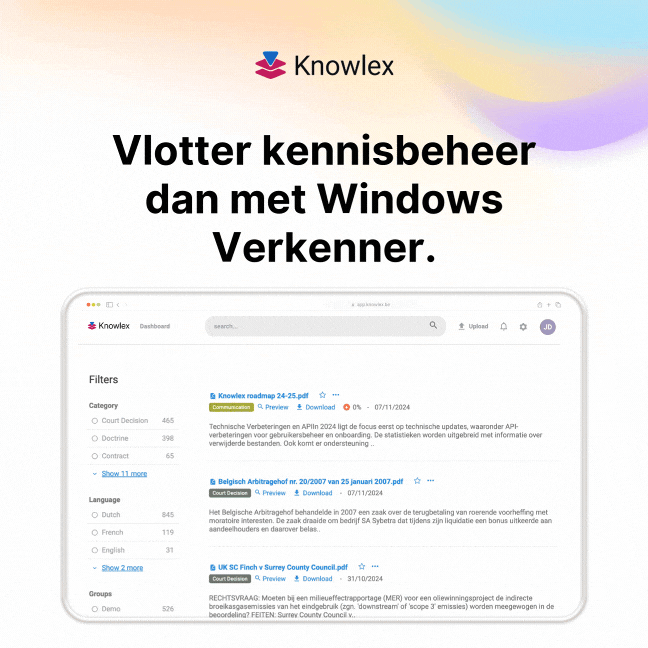On 25 May 2018 the Council of the European Union adopted a number of important amendments to Directive 2011/16/EU on Administrative Cooperation to introduce mandatory automatic exchange of information obligations in relation to reportable cross-border arrangements (which is often referred to as DAC). Because it is the sixth time that the DAC has been amended the new reporting regime is commonly referred to as DAC6.
DAC6 has been developed by the OECD as Action 12 of the BEPS report. The OECD refers to the rules as the Mandatory Disclosure Regime. According to the BEPS Explanatory Statement the lack of timely, comprehensive and relevant information on aggressive tax planning strategies is one of the main challenges faced by tax authorities worldwide. Early access to such information provides the opportunity to quickly respond to tax risks through informed risk assessment, audits, or changes to legislation. DAC6 specifically contemplates financial intermediaries and tax advisors because they are considered instrumental to the set-up of aggressive tax planning structures.
Mechanism
The scope of DAC6 encompasses all taxes of any kind levied by, or on behalf of, a Member State or the Member State’s territorial or administrative subdivisions, with the exception of VAT, customs duties, excise duties and compulsory social contributions.
DAC6 contemplates cross-border arrangements that contain at least one of the hallmarks set out in Annex IV of the Directive. A cross-border arrangement means an arrangement concerning either two or more Member States or a Member State and a third country where at least one of the following conditions is met:
- not all of the participants in the arrangement are resident for tax purposes in the same jurisdiction;
- one or more of the participants is simultaneously resident for tax purposes in more than one jurisdiction;
- one or more of the participants in the arrangement carries on a business in another jurisdiction through a permanent establishment in that jurisdiction and the arrangement forms part or the whole of the business of that permanent establishment;
- one or more of the participants in the arrangement carries on an activity in another jurisdiction without being resident for tax purposes or creating a permanent establishment situated in that jurisdiction;
- such arrangement has a possible impact on the automatic exchange of information or the identification of beneficial ownership.
Who must report?
DAC6 requires intermediaries established within the EU to report cross-border arrangements that have one or more hallmarks that are indicative of aggressive tax planning. Certain intermediaries may rely on professional secrecy protection to avoid their reporting obligations.
DAC6 distinguishes between two types of intermediaries, i.e. promotors and facilitators or service providers.
- An intermediary is a promotor if it designs, markets, organizes or makes available for implementation or manages the implementation of a reportable cross-border arrangement.
- A facilitator or service provider is an intermediary that knows or can be expected to know, that it has undertaken to provide, directly or indirectly, aid, assistance or advice with respect to designing, marketing, organizing, making available for implementation or managing the implementation of a reportable cross-border arrangement.
Whilst a promotor will almost invariably have a full understanding of the arrangement, this will not necessarily be the case for a service provider or facilitator. To qualify as a service provider or facilitator with reporting obligations, the intermediary must meet a “reason-to-know” test. An intermediary that provides services without knowing that the services are used by the customer in connection with a reportable cross-border arrangement or that is aware of the material aspects of the arrangement without having provided aid, assistance or advice, must not report under DAC6 unless it can be reasonably expected to know, based on its business expertise, that the service offered has facilitated a reportable cross-border arrangement.
Impact on the asset management sector
Intermediary?
Several actors in the asset manager sector may potentially have reporting obligations under DAC6. An EU-based asset manager can be an intermediary if it would either promote or service a reportable cross-border arrangement. In case the asset manager or fund administrator would set-up, manage or enter into such an arrangement for the account of the fund, it may have reporting obligations under DAC6 because in such case it may be considered as having “designed, marketed, organized, or made available for implementation” a reportable cross-border arrangement.
There may also be instances whereby the asset manager or fund administrator has reporting obligations under DAC6 even when it does not play an active role with respect to the arrangement the fund has entered into. It is indeed sufficient that the asset manager or fund administrator passes the “reason-to-know” test and that it knows or could be expected to know based on its professional experience that it has aided, assisted or advised the fund with respect to a reportable cross-border arrangement.
Is the set-up of an investment fund a reportable “arrangement”?
The question can be raised whether the set-up of an investment fund with foreign investors could constitute a reportable cross-border arrangement in its own right. Most funds are indeed subject to a special tax regime. The public policy objective of these regimes usually is not to penalize or to incentivize investors to make use of a structure that offers a professionally managed diversified portfolio as compared to a direct investment made by the investor. The interposition of the fund would indeed be a hard-sell if its profits would be reduced at ordinary corporate income tax rates.
One could argue in this respect that the mere set-up of a fund subject to a special tax regime or the subscription of shares or units of such fund is not a cross-border arrangement as intended by DAC6 because the tax benefits are granted as intended by the legislator and does not involve any form of profit shifting or other steps taken by a taxpayer to make unintended use of certain tax benefits.
The draft UK Guidance provides that in the case of a collective investment vehicle with investors established in a different jurisdiction than that of the collective investment vehicle, there is no cross-border arrangement. The reason given is that the location of the investors is not material to the establishment of the vehicle. If, however, it would appear that the arrangement exploits a mismatch between the taxation rules of both countries allowing investors to gain certain unintended tax benefits, the arrangement would be considered a cross-border arrangement, because the place of establishment of the collective investment vehicle is of material relevance to the scheme in such case.
Conclusion
Most of the difficulties faced by the asset management sector in connection with DAC6 are caused by the many interpretation issues triggered by the broad wording of the Directive and the lack of uniform EU-wide interpretation guidance. The broad wording of Directive may lead to DAC6 being applied to routine transactions involving investment funds where legitimate tax advantages laid down in the applicable tax laws are available. This would lead to a huge administrative burden not only for the intermediaries involved but also for the tax authorities that are on the receiving end. It is key therefore that uniform and sensible guidance is issued to ensure that the interpretation of the various DAC6 provisions is clarified such that it focuses only on arrangements that involve aggressive tax planning, as intended by the Directive. It is key that arrangements which realize tax benefits in line with the policy intent of the applicable tax legislation are carved out.
This article is an abridged version of the article “Impact of DAC 6 on the asset management sector” by Koen Marsoul, which was published in Tijdschrift Beleggingsfiscaliteit – Revue Fiscalité des Placements – Tax Clicking, no. 12.




0 commentaires